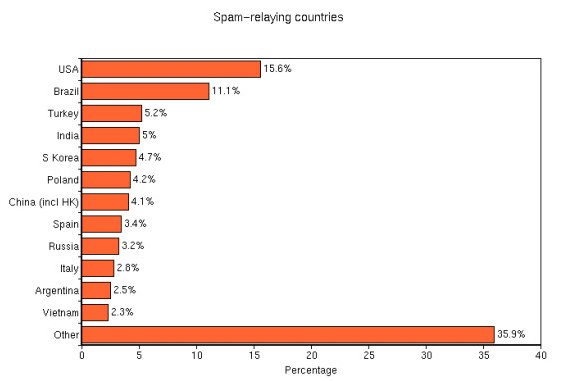Report: Americans dumber than a box of rocks about spam

When it comes to spam, we Americans are quick to point our fingers at Russia, China and eastern Europe as the regions responsible for the bulk of it. But a new report issued today found that Americans are largely to blame - not because we create it, but because we're too stupid to recognize that we're spreading it.
OK, maybe the report, conducted by IT security and data protection firm Sophos, didn't use the word "stupid" to describe us but it might as well have. The report noted that, during the second quarter of 2009, Americans relayed more spam than any other country. Here's the quote that drives it all home, from Sophos senior technology consultant Graham Cluely:
Barack Obama's recent speech on cybersecurity emphasised the threat posed by overseas criminals and enemy states, but these figures prove that there is a significant problem in his own back yard. If America could clean up its compromised PCs it would be a considerable benefit to everyone around the world who uses the net. All web users need to properly defend their computers from attack, and pledge to never act upon spam messages.
Yes, folks, they're talking about you. And they've highlighted a new battle ground where we're enabling more spam to spread - social networking sites.
With that said, one of the things I like about using a third-party service like TweetDeck for my Twitter correspondences is that a click on the link doesn't automatically take me to that site. Instead, it shows me the short and long URLs first and gives me the choice of which to click. If the long address looks legit, that's where I click.
The spam problem isn't going away - but we can make a difference if we just use some common sense. I don't like the idea of the rest of the world mocking the U.S. either, but it looks like we had this one coming.
Also see: Spammers like shortcut URLs, too. Should Twitter be worried?